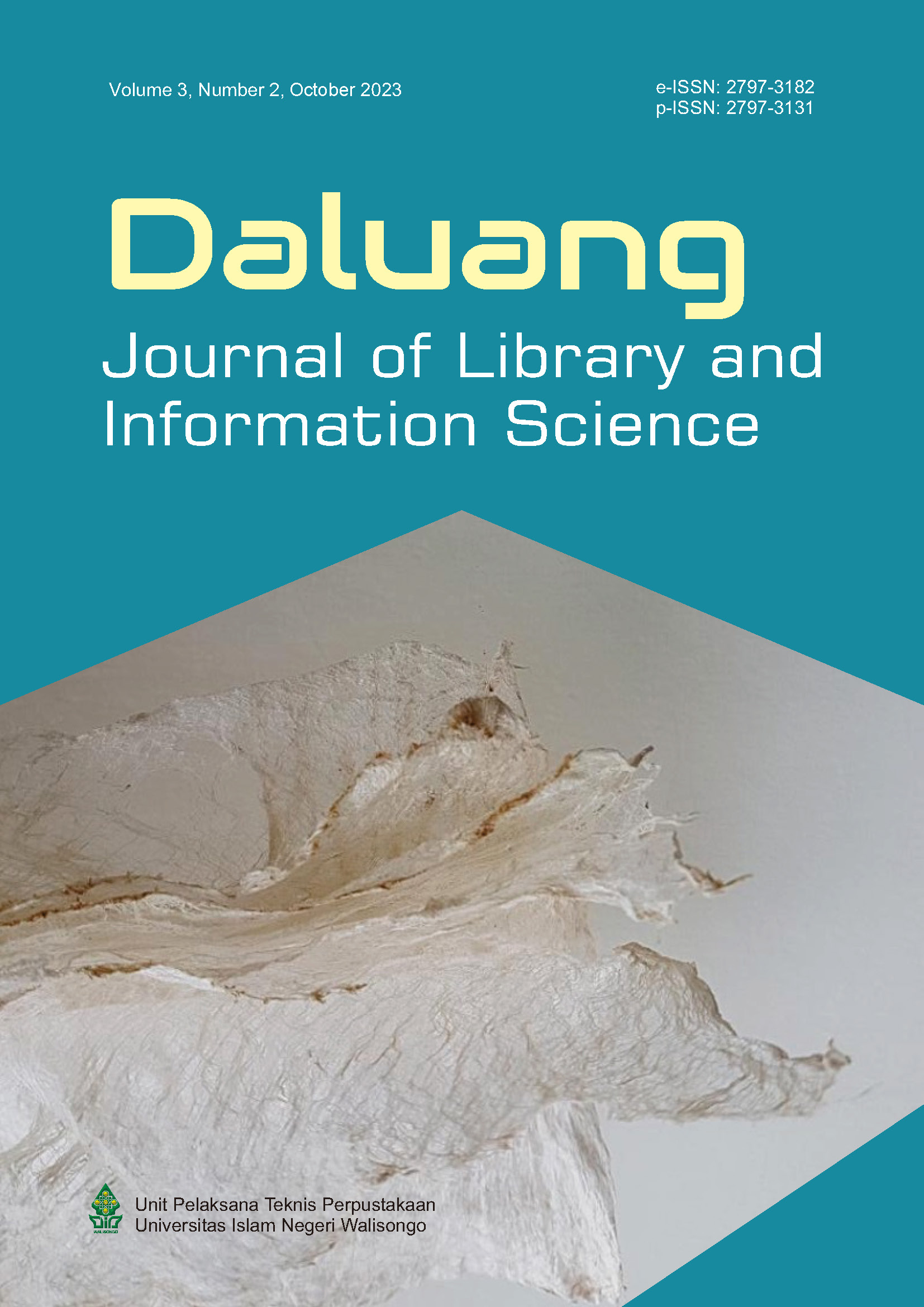Pendekatan strategis untuk mengatasi sikap agresif audiens dalam konteks difusi informasi di media sosial
Main Article Content
Abstract
Purpose. This study extensively examines social media aggression's patterns and impacts on information reception, focusing on behaviors like cyberbullying and hate speech. It aims to uncover the causes and consequences of these actions, contributing to mitigation strategies.
Methodology. The study utilizes data analysis with software assistance and random questionnaires from various respondents to explore strategies for reducing aggression in information diffusion. Qualitative analysis involves examining these strategies with references to social media platform observations.
Results and discussion. Findings reveal that respondents prioritize sharing truthful information, even in the face of aggression. They maintain a positive attitude to clarify content and avoid the spread of falsehoods.
Conclusions. This study underscores the importance of self-regulation and responsible online behavior. Enhancing self-regulation skills, maintaining a responsible online presence, and selecting content consumption are essential for eliminating unnecessary or aggressive information. These findings offer valuable insights into social media aggression dynamics, so it develops effective mitigation strategies in the digital age.
Downloads
Article Details
This work is licensed under a Creative Commons Attribution-NonCommercial-NoDerivatives 4.0 International License.
Articles published in Daluang Journal of Library and information Science are available under Creative Commons Attribution Non-Commercial No Derivatives Licence (CC BY-NC-ND 4.0). Authors retain copyright in their work and grant Daluang Journal of Library and information Science right of first publication under CC BY-NC-ND 4.0. Users have the right to read, download, copy, distribute, print, search, or link to the full texts of articles in this journal, and to use them for any other lawful purpose.
Articles published in Daluang Journal of Library and information Science can be copied, communicated and shared in their published form for non-commercial purposes provided full attribution is given to the author and the journal. Authors are able to enter into separate, additional contractual arrangements for the non-exclusive distribution of the journal's published version of the work (e.g., post it to an institutional repository or publish it in a book), with an acknowledgment of its initial publication in this journal.
This copyright notice applies to articles published in Daluang Journal of Library and information Science volumes 1 onwards.
References
Borecka-Biernat, D. (2019). Aggressive strategy for coping with a social conflict situation by adolescents: Psychosocial conditions. Forum Oświatowe, 31(1), 41–59. https://doi.org/https://doi.org/10.34862/fo.2019.1.3
Breuer, J., & Elson, M. (2017). Frustration-aggression theory. The Wiley Handbook of Violence and Aggression, 1–12. https://doi.org/10.1002/9781119057574.whbva040
Cinelli, M., de Francisci Morales, G., Galeazzi, A., Quattrociocchi, W., & Starnini, M. (2021). The echo chamber effect on social media. Proceedings of the National Academy of Sciences of the United States of America, 118(9). https://doi.org/10.1073/pnas.2023301118
Dai, Z., & Zheng, Y. (2021). Chinese newlyweds’ perception and tolerance toward common and severe partner aggression. Psychology Research and Behavior Management, 14, 1981–1991. https://doi.org/10.2147/PRBM.S337263
Deloitte. (2023). Global Foreword. Deloitte LLP. https://www2.deloitte.com/uk/en/pages/financial-services/articles/regulatory-outlook-global-foreword.html
Etta, G., Cinelli, M., Galeazzi, A., Valensise, C. M., Conti, M., & Quattrociocchi, W. (2021). News consumption and social media regulations policy. 1–12. https://doi.org/https://doi.org/10.48550/arXiv.2106.03924
Fahmi, L. (2019). Terapi berkala kombinasi bimbingan konseling Islam dengan Rational Emotif Behavior Theraphy (REBT) pada penanganan perilaku agresif anak di SD Al-Falah Assalam Tropodo Sidoarjo. Jurnal Al Isyraq, 2(2), 121–135. https://jurnal.pabki.org/index.php/alisyraq/article/view/25
Giese, H., Neth, H., & Gaissmaier, W. (2021). Determinants of information diffusion in online communication on vaccination: The benefits of visual displays. Vaccine, 39(43), 6407–6413. https://doi.org/10.1016/j.vaccine.2021.09.016
Poiitis, M., Vakali, A., & Kourtellis, N. (2020). On the aggression diffusion modeling and minimization in online social networks. Ic.
Shorunke, O. A., Eluwole, O. A., & Gbenu, S. A. (2014). Evaluating users’ satisfaction with Landmark University’s online public access catalogue. Samaru Journal of Information Studies, 14(1&2), 13–19. https://www.ajol.info/index.php/sjis/article/view/118018
Sijtsema, J. J., & Lindenberg, S. M. (2023). The interplay between status and affection needs : Testing the imbalanced needs theory of aggression in adulthood. Journal of Interpersonal Violence, 38(1–2), NP772–NP795. https://doi.org/10.1177/08862605221084741
Sugiyanto, E. (2022). Pengaruh sikap agresif dan sikap antisosial terhadap kecanduan game online: Studi kasus SMA Dharma Suci Jakarta Utara. Dhammavicaya : Jurnal Pengkajian Dhamma, 6(2), 13–18. https://doi.org/10.47861/dv.v6i2.52
Untung, Rosanty, A., & Kiptiyah, M. (2022). Aggressive attitudes in the novel Street Kid by Judy Westwater : Psychology of Literature. Dialektika: Jurnal Ilmiah Pendidikan Bahasa, Sastra, dan Matematika, 8(1), 1–14. https://journal.fkip-unilaki.ac.id/index.php/dia/article/view/33
Valensise, C. M., Cinelli, M., & Quattrociocchi, W. (2023). The drivers of online polarization: Fitting models to data. Information Sciences, 642, 1–11. https://doi.org/10.1016/j.ins.2023.119152
Xu, N., Lin, Q., Hu, H., & Li, Y. (2022). The effect from elimination mechanism on information diffusion on entertainment programs in Weibo. Frontiers in Physics, 10(November), 1–15. https://doi.org/10.3389/fphy.2022.1032913



